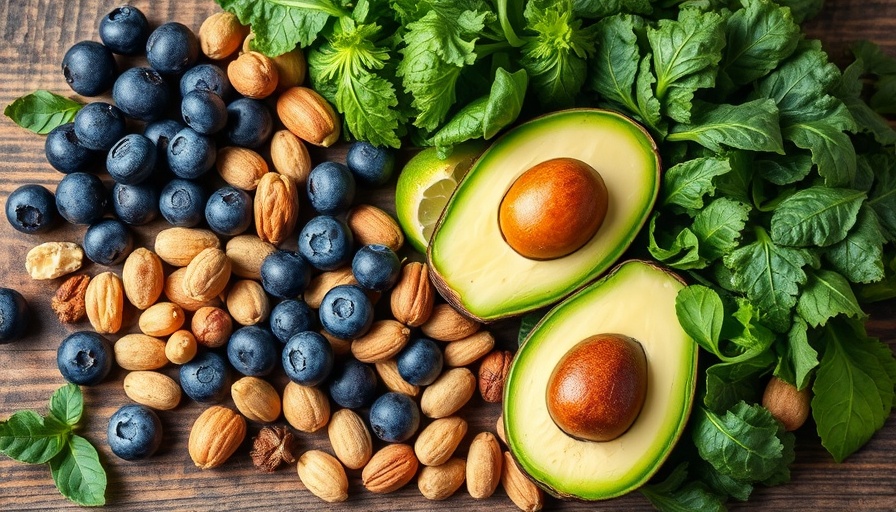
The Hidden Connection Between Gut Health and Diabetes
For individuals navigating life with diabetes, understanding the intricate web of health factors can be pivotal. One of the biggest revelations in diabetes management is the strong connection between gut health and blood sugar regulation. The gut microbiome, consisting of trillions of bacteria in our intestines, plays a vital role in metabolism, inflammation, and insulin regulation. The choices we make in our diets can significantly impact the health of our gut microbiome.
Why is Gut Health Essential for Diabetes?
Research indicates that maintaining a balanced gut flora can enhance insulin sensitivity, reduce inflammation, and ultimately support better blood sugar control. When you consume gut-friendly foods, you not only nourish your gut but also fortify your body against the adverse effects of diabetes. This connection makes gut health an essential consideration in diabetes management, serving as a foundation for overall well-being.
Top Gut-Friendly Foods for Diabetes Management
Choosing the right foods can have a significant impact on blood sugar levels. Here are the best food categories to incorporate:
1. Fiber-Rich Foods: Nature’s Prebiotics
Fiber has dual benefits: it feeds beneficial gut bacteria while also slowing glucose absorption. Include:
- Leafy Greens: Spinach, kale, and Swiss chard are low in carbs and high in fiber.
- Cruciferous Vegetables: Broccoli and Brussels sprouts are packed with prebiotics.
- Berries: Blueberries, raspberries, and blackberries offer fiber and antioxidants.
- Avocados: Rich in healthy fats and gut-supporting fiber.
- Legumes: Lentils and chickpeas, when consumed in moderation, are great sources of fiber.
2. Fermented Foods: Probiotics for a Healthier Gut
Foods rich in live bacteria can improve digestion and insulin sensitivity:
- Greek Yogurt: Packed with protein and beneficial probiotics.
- Kefir: A fermented dairy product brimming with microbial life.
- Sauerkraut & Kimchi: Fermented cabbage varieties that support digestion.
- Miso & Tempeh: Fermented soy products known for their probiotic benefits.
3. Healthy Fats: The Anti-Inflammatory Heroes
These fats help in reducing inflammation and provide essential nutrients:
- Olive Oil: Rich in polyphenols that support gut lining.
- Nuts & Seeds: Almonds, walnuts, and chia seeds are excellent sources of fiber and omega-3s.
- Fatty Fish: Salmon, mackerel, and sardines provide beneficial omega-3 fatty acids.
- Coconut Oil: Contains medium-chain triglycerides (MCTs) promoting gut healing.
4. Healing Foods: Mending Your Gut
Support your intestinal lining to combat leaky gut symptoms:
- Bone Broth: Rich in collagen, it aids gut health.
- L-Glutamine-Rich Foods: Cabbage, spinach, and eggs help repair gut cells.
- Turmeric: An anti-inflammatory that supports gut lining integrity.
- Ginger: Not only reduces inflammation but also aids digestion.
5. Stay Hydrated: Fluids Are Key
Don't forget the power of hydration, especially through anti-inflammatory drinks like herbal teas and water infused with lemon, which can help support your gut health.
Taking Action: Your Next Steps
Incorporating these foods into your daily diet can be a game-changer for managing diabetes. Start by making small changes, like adding a serving of berries to your breakfast or swapping out sweet snacks for unsweetened Greek yogurt. Each step you take towards a gut-friendly diet is a step towards better health.
By prioritizing what you eat, you not only enhance your gut microbiome but also gain better control over your blood sugar levels. Take charge of your health—your gut (and your blood sugar) will thank you!
 Add Row
Add Row  Add
Add 




Write A Comment